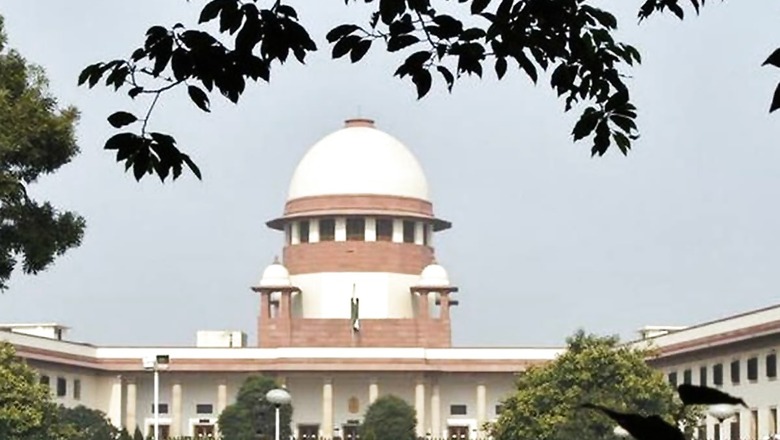
views
A court cannot obviate its duty to record reasons while deciding on bail as the matter implicates the liberty of accused, interest of the state and the victims in proper administration of criminal justice, the Supreme Court said on Tuesday. A bench of Justices D Y Chandrachud and M R Shah made this observation in its verdict setting aside the Gujarat High Court orders granting bail to six accused for their alleged involvement in a murder case.
The apex court said that consent of parties cannot obviate the duty of high court to indicate its reasons why it has either granted or refused bail as outcome of the application has a significant bearing on the liberty of accused on the one hand as well as public interest in due enforcement of criminal justice on the other. We disapprove of the observations of the high court in a succession of orders in the present case recording that the counsel for the parties do not press for a further reasoned order'. The grant of bail is a matter which implicates the liberty of the accused, the interest of the state and the victims of crime in the proper administration of criminal justice, the bench said.
The top court noted it is a well-settled principle that in determining as to whether bail should be granted, the high court and the sessions court deciding an application under section 439 of the CrPC would not launch upon a detailed evaluation of facts on merits since a criminal trial is still to take place. Section 439 of the Code of Criminal Procedure (CrPC) deals with special powers of the high court or sessions court regarding bail. These observations while adjudicating upon bail would also not be binding on the outcome of the trial. But the court granting bail cannot obviate its duty to apply a judicial mind and to record reasons, brief as they may be, for the purpose of deciding whether or not to grant bail, the bench said.
The consent of parties cannot obviate the duty of the high court to indicate its reasons why it has either granted or refused bail," it said. The bench said that proper enforcement of criminal law is a matter of public interest. We must, therefore, disapprove of the manner in which a succession of orders in the present batch of cases has recorded that counsel for the respective parties do not press for further reasoned order'. If this is a euphemism for not recording adequate reasons, this kind of a formula cannot shield the order from judicial scrutiny, it said.
The apex court was hearing a batch of appeals challenging the high court orders granting bail to six accused in a murder case in which five persons were killed. The FIR in the case was lodged in May last year. The top court also noted that four days after the FIR was registered, a cross FIR was lodged by one of the accused. It noted in its verdict that nature of the offence is a circumstance which has an important bearing on the grant of bail. The orders of the high court are conspicuous in the absence of any awareness or elaboration of the serious nature of the offence. The perversity lies in the failure of the high court to consider an important circumstance which has a bearing on whether bail should be granted, it said. The bench also pointed out to the manner in which the high court had applied the principle of parity in granting bail to some of these accused.
Parity while granting bail must focus upon role of the accused. Merely observing that another accused who was granted bail was armed with a similar weapon is not sufficient to determine whether a case for the grant of bail on the basis of parity has been established, it said. The bench said in deciding the aspect of parity, the role attached to the accused, their position in relation to the incident and to the victims is of utmost importance. It said that grant of bail under section 439 of the CrPC is a matter involving the exercise of judicial discretion and the duty to record reasons is a significant safeguard which ensures that the discretion which is entrusted to the court is exercised in a judicious manner. The apex court, while setting aside the high court orders, directed the six accused to surrender forthwith.
.
Read all the Latest News, Breaking News and Coronavirus News here. Follow us on Facebook, Twitter and Telegram.

















Comments
0 comment